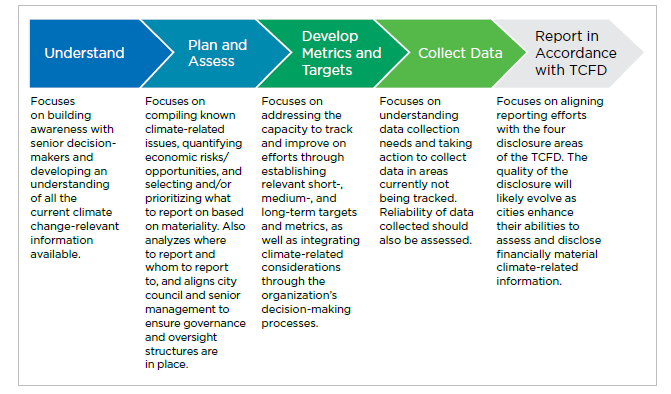Understanding and Assessing Impacts
The current and future impacts of climate change present both risks and opportunities to cities and their service delivery models. Insured losses in Canada have been over CAD $1 billion per year for the past five years, with payouts in 2018 reaching nearly CAD $2 billion. In reaction to the growing costs and risks of climate change, multiple Canadian cities in recent months have declared “climate emergencies” and are responding with actions accordingly. Therefore, understanding the costs and potential economic benefits of climate change is essential for cities and their stakeholders. Cities that adopt a strategic long-term approach to climate adaptation and mitigation will be better prepared to support economic growth, attract new investors, reduce potential costs and damages, and build more resilient communities. The guide developed by CPA Canada includes five main resources that cover a general process framework for aligning a city’s internal and external reporting with the TCFD recommendations. The framework includes details for cities on the process for preparing climate-related financial disclosures and reviews best practices surrounding this area. The framework five phases include:
- Identifying existing data;
- Planning and assessing the information;
- Developing metrics and targets;
- Collecting new data; and
- Reporting on climate-related disclosures.
For additional climate information, look at the Resources section of this example (below).
